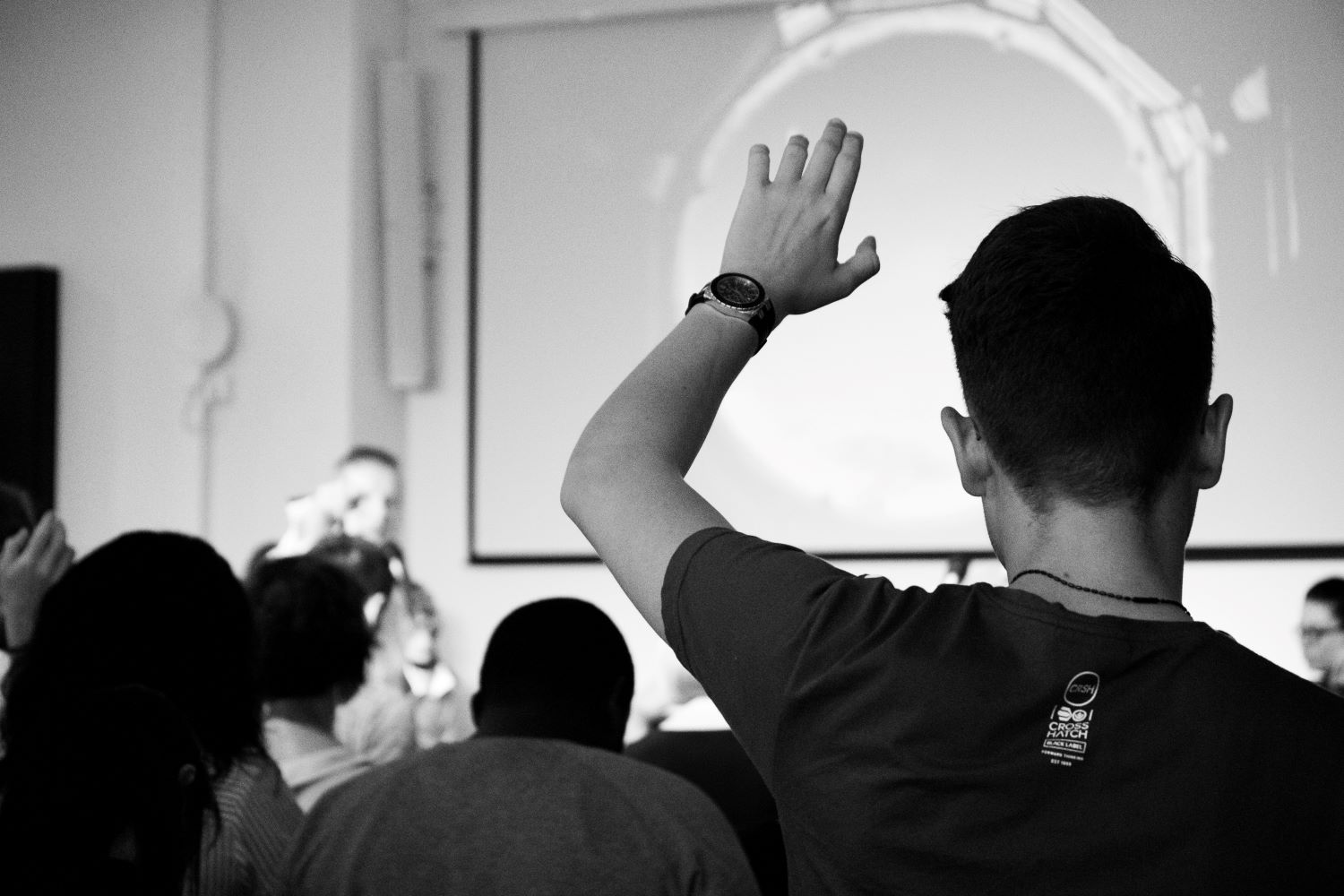With many people under increasing financial pressure, community groups originally set up to provide support during the pandemic have become a central part of the local response. New research by LSE Housing and Communities reveals the extent of the task at hand, as well as the challenges these groups face, and the risks presented if their work is not fully understood and supported, explain Eleanor Benton and Anne Power.
The cost-of-living crisis has increased the prices of energy, food and other essential costs. People are increasingly struggling to meet everyday expenses, including feeding their families, keeping their homes warm and traveling to work. Our previous work exploring the role of mutual aid groups during the COVID-19 pandemic showed that community groups play a vital role in offering support to people in need during challenging times. Now, new research captures how community groups are supporting people through the cost-of-living crisis.
Selecting 20 community groups from across the UK as the main focus of study, we carried out interviews and site visits. We set out to identify what kind of help they offered, who the recipients and beneficiaries of that help are, how needs have changed, and what help groups need to continue supporting their local communities.
Understanding community groups and their role
The 20 groups offer different forms of support with the most common being the provision of free or low-cost food. Other support includes children’s clothing and equipment, free toiletries, IT support and social activities. In addition to their core focus, each group was linked to a network of local organisations to which they could refer people on for more specialist help in areas they did not feel qualified to deal with. They also provide important social contact for people struggling with loneliness.
The groups are predominately volunteer-led. Some groups had one or two members of paid staff, all of whom had previously been volunteers, while others were completely run and organised by volunteers. All the groups were motivated to help people struggling to manage in their local community. Eight of the groups were set up in response to the first COVID-19 lockdown, whilst the other 12 groups were set up pre-pandemic to address local issues such as food or child poverty.
Who are the beneficiaries?
All the groups help people struggling to meet everyday costs. The majority help anyone who needs support, but some groups target help at specific beneficiaries, such as children. All the groups receive referrals from external agencies such as social services, and often provide essential assistance that is not available from statutory agencies. Some groups require external referrals; some allow people to self-refer. Groups that choose to accept self-referrals do so to reduce the barriers for people accessing support. The groups that require external referrals want to ensure that people are receiving wider support to change their situation alongside their very immediate needs.
“We do have referrals from the money advice team – health prescribing, things like that,” explained the founder of Secret Angels, an organisation working to tackle fuel and food poverty in Wolverhampton. “I know that some organisations cut you off after a set amount of time. It’s a difficult decision. We will help anyone who asks. I don’t want to make a decision to say no, and then hear that something has happened to them.”
Changing needs
Demand for the groups’ support has increased over recent months, which they attribute to the removal of the £20 uplift in Universal Credit, the April and October increase in energy prices, and the general increase in the cost of basic goods. The groups are increasingly seeing people unable to afford basic items, heat their homes or use cooking appliances. In response, food support groups have started handing out “no cook” food packages.
Previously, groups would help service users to “maximise” their incomes by, for example, applying for all the benefits they were eligible for, or supporting them with budgeting. Now they are finding it increasingly difficult to identify ways for people to increase their incomes: most are already budgeting carefully, working, and claiming all their entitled benefits. Their incomes are simply too low to cover their essential expenses.
Interviewees felt that the support they offered was no longer short-term emergency help as people were struggling to cope week after week.
The groups have seen more and more people in in-work poverty and increasingly support people who have never needed help before. Interviewees felt that the support they offered was no longer short-term emergency help as people were struggling to cope week after week. The situation is made more difficult by a drop-off in donations, which groups attribute to the wider population having less money to spare. “The first week we had five people collecting [food parcels] for a total of 15 people, last week we had 200 collecting for 700 people. It’s mind-blowing,” explained the group leader of Hornsey Food Bank.
Adapting support amid deepening crisis
Compared to the mutual aid groups we spoke to during the first COVID-19 lockdown, the community groups have formalised their management structures, streamlined their support offering, and are more heavily relied upon by statutory services such as schools. All the groups have adapted how they work to keep up with growing demand. Several of the groups decided to take on formal structures such as becoming a charity or a community interest company (CIC), which has made it easier to apply for funding. Some groups have taken on paid members of staff since the running of services put too much pressure on volunteers. Some volunteers were struggling to meet their own costs, particularly those not in paid work.
Some of the food support groups have changed how they distribute food, putting tighter restrictions in place to ensure there is enough to go around among the growing number of people needing their services. Other groups now offer new types of assistance to help keep up with new challenges posed by the cost-of-living crisis, such as “warm space” community rooms for people to access if they are struggling to heat their homes.
Funding is a significant challenge for nearly all the groups. They need longer-term funding, particularly to cover core costs such as rent, bills and staffing. Groups report that grants are usually very specifically targeted at projects, and often do not cover general running costs essential to the group’s success. Groups also need practical help such as larger venues, or the use of a van. Several groups are provided with free spaces by local councils and housing associations, which is central to their ability to run. The groups generally feel that the government and councils need to acknowledge the vital support they are providing and offer support with space, transport and core funding.
The vital work of community groups must be valued and supported
Community groups are playing a vital role in supporting people in crisis. Without the help of these groups, many people would not have access to food or basic necessities for their children. Community groups are acutely aware of the challenges facing local people on low incomes. They can adapt quickly, offering new forms of support where needed. Community groups can also support each other by sharing resources and advice. Bringing local support providers together would help build these relationships and ensure scarce local resources are used in the most effective and efficient way.
Without the help of these groups, many people would not have access to food or basic necessities for their children.
All the community groups we spoke to were receiving referrals from statutory organisations and often provided support that these services were unable to offer. However, these groups are not centrally funded and should not become a stand-in for statutory support, rather, they should work as part of a network of service offers, complimenting more established organisations and government-funded bodies.
This vital work is predominantly provided by volunteers and relies heavily on donations. It is important that volunteers feel properly supported, valued, and not overworked. Training to help volunteers cope with more difficult situations, and holding regular reflective sessions, may help them to avoid burnout.
Funding is a challenge for community groups, and this is likely to get worse as demand for the groups’ services grows while the cost-of-living crisis deepens. Groups need stable, long-term sources of funding to help cover core costs such as bills, transport and staffing. More stable funding would also act as a buffer against the drop in donations that many groups are starting to experience.
As well as the emergency support provided by many of the groups, it is important to help people escape poverty change their situation durably, through money management, debt advice or more and better paid work. However, for many people there is nothing more they can do to increase their incomes. They simply do not have enough money to cover essential costs. While the work of these community groups is crucial, it is not enough on its own to tackle the longer-term roots of the cost-of-living crisis. This requires an overhaul of how wages, benefits, and the economy work, to tackle the wider problems of poverty, low incomes and rising costs.
Note: This post draws on research by LSE Housing and Communities. The full report “Community Responses to the Cost-of-Living Crisis” can be downloaded here.
All articles posted on this blog give the views of the author(s), and not the position of LSE British Politics and Policy, nor of the London School of Economics and Political Science.
Image credit: Photo by Aaron Doucett on unsplash.






